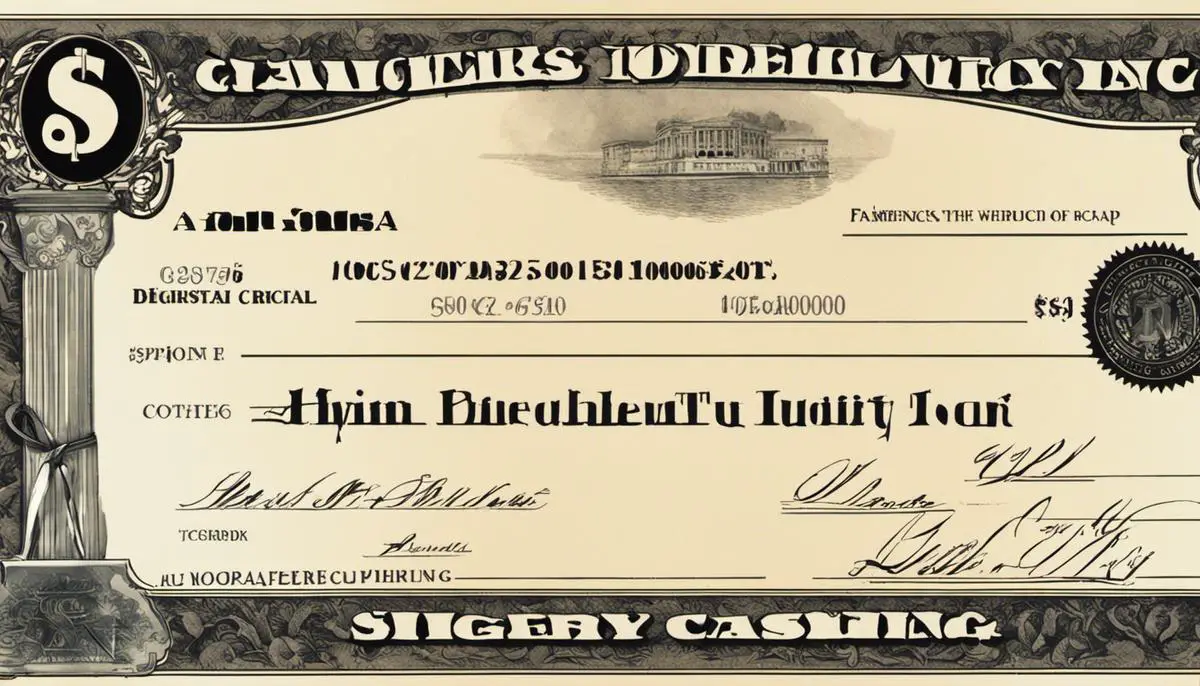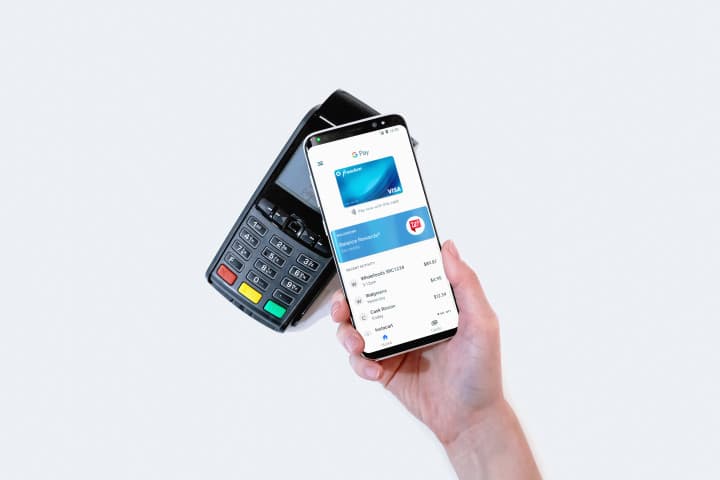Large sums of money often come in the form of big checks, whether it’s a lottery win, business transaction, or a generous gift. Understanding the process of big check cashing can be a real game-changer, ensuring you smoothly handle these substantial amounts without falling victim to common pitfalls or scams.
I’ll give you the insights you need, simplifying complex banking procedures and breaking down the specifics of cashing such large checks. We will take you through the steps involved, the associated fees and policies of various banking institutions, as well as highlighting alternate methods of handling large checks.
Understanding Big Check Cashing
Understanding Big Check Cashing
Big check cashing pertains to the process of converting a large value check into hard cash. These types of transactions typically occur when an individual or organization receives a large sum of money, usually from situations such as lottery or sweepstakes winnings, significant business deals, and substantial legal settlements.
The importance of understanding big check cashing lies in the details and intricacies of the process. Given the large sum involved, financial institutions may have certain procedures and policies in place to ensure the legitimacy and security of the transaction. This process can be a complex transaction given the regulations and procedures involved and thus, understanding its ins and outs can potentially save recipients significant time and confusion.
Situations Involving Big Checks
One of the most common instances where big checks are issued is in the case of sweepstakes or lottery winnings. Due to the nature of these instances, the prize money involved is often substantial and paid in one lump sum, or in installments depending on the specific terms of the sweepstakes or lottery. Converting these checks into cash requires the winner to go through big check cashing.
Another situation would be during larger business transactions, where organizations or individuals are given a large sum of money as a result of mergers, acquisitions, or sale of property. In these scenarios, a big check cashing process applies, as the amount of money involved is usually significant.
Legal settlements also often result in the issuance of big checks. These settlements can arise from a variety of legal situations including lawsuits related to personal injuries, class action suits, or divorce proceedings. The amount of the settlement again involves a large sum and as such, need to undergo big check cashing.
Processes Involved in Cashing Large Checks
Handling a large check isn’t as simple as walking into a bank, presenting it to the teller, and leaving with an enormous wad of cash. The bank first has to confirm the check’s authenticity and ensure there are enough funds in the account it’s drawn from. Moreover, large transactions are closely scrutinized because they could potentially be linked to illegal activities, such as money laundering or fraud.
It’s worth noting that any transaction exceeding $10,000, check cashing laws require reporting to the federal government. This rule guards against mysterious or possibly unlawful monetary maneuvers. Additionally, Regulation CC stipulates that banks are obliged to provide at least $200 on the business day following a deposit, with the remaining funds made available several business days later, depending on the size of the check.
Considering these factors, understanding the process of cashing large checks becomes essential. This not only familiarizes you with the procedures and policies surrounding large financial transactions, but also offers insights into potential restrictions or challenges you might encounter when receiving sizable payments.
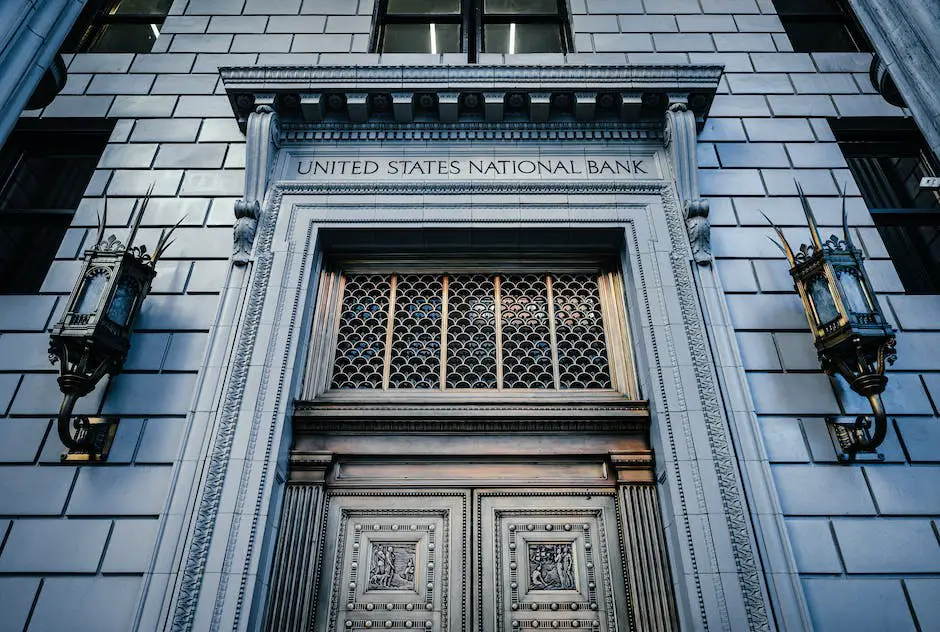
The Process of Big Check Cashing
Navigating the Initial Steps of Cashing a Large Check
The process of turning a large check into cash starts off in much the same way as cashing any other cheque, but with a few additional steps due to the size of the sum. After you hand over the check to the bank teller, they will need to confirm your identity, usually by asking for a valid photo ID. As a subsequent step, the validity of the check itself becomes a focal point. Checks with considerable dollar amounts are subjected to more thorough examination to minimize the risk of fraud or inadequate funds in the account from which the check is drawn.
Bank Policies on Large Checks
Bank policies regarding large checks can greatly vary based on the financial institution. Typically though, banks have a threshold amount that triggers additional steps for processing the check. For checks above this threshold which is often several thousand dollars, the verification process is more stringent.
The bank may contact the issuing bank to confirm that the account has sufficient funds and that the check is valid. If you’re not a customer of the bank where you’re cashing the check, you may also have to pay a fee. Additionally, some banks or credit unions may impose a hold on a portion of the funds until the check is cleared, which earns interest for the bank.
Timelines for Funds Availability
While smaller checks often clear within a day or two, larger checks may take longer due to aforementioned verification process. The check clearing process can take several business days, and sometimes as long as a week or more. The precise timing depends not only on your bank’s policies, but also on the amount of the check, the type of check, and how long you’ve held your account.
The Federal Reserve’s Regulation CC provides a guideline for hold periods, but your bank’s specific policies may apply differently based on your account history, account balance, and if you’ve overdrawn your account before.
Challenges Encountered with Large Check Cashing:
Cashing a check with a large sum can occasionally encounter problems, the most common being a hold placed on the funds by the bank. Even with verification, a portion of the funds may be withheld until the check is fully cleared. If the check is later discovered to be fraudulent or the issuer’s account lacks sufficient funds to cover the amount, the responsibility for reimbursing the bank could fall on you. Therefore, the importance of verifying the legitimacy of the check and the payer’s funds cannot be overstated before making an attempt to deposit or cash the check.
In addition, it’s worth noting that sizable deposits, such as large checks, can set off a review by your bank. They might even lead to your deposit being reported to the IRS, as transactions over $10,000 must be reported to the federal government under the Bank Secrecy Act. Staying aware of potential implications like this when dealing with large checks is advantageous.
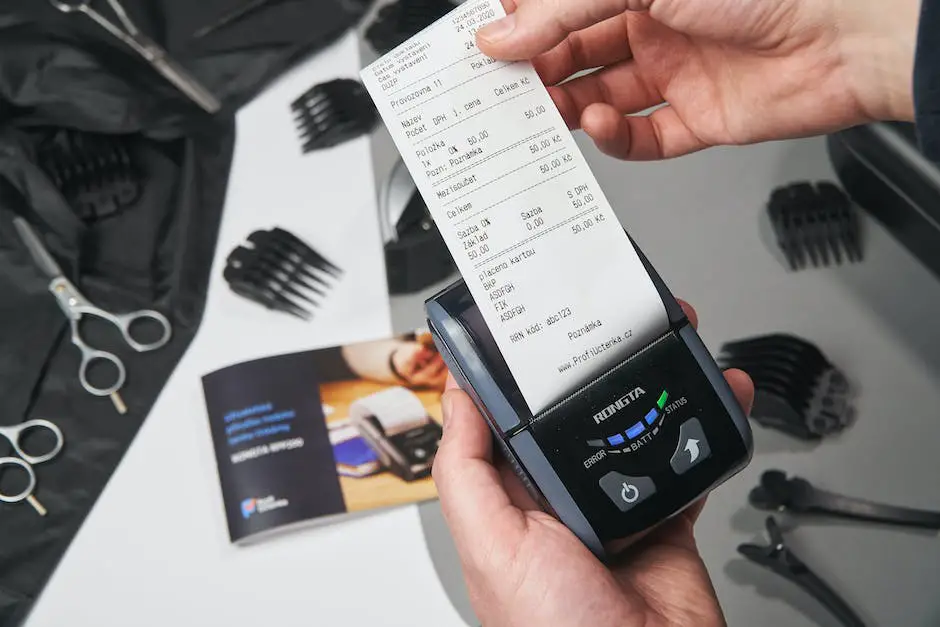
Navigating Fees and Policies
The Factors and Fees Associated with Large Check Cashing:
When referring to large check cashing, we’re generally talking about checks that hold significant sums of money, often in excess of $1,000. A pivotal factor that is often overlooked in this scenario is the fees associated with cashing such checks. These fees can fluctuate widely, depending on the check type and the institution where it’s cashed. Banks, credit unions, and check-cashing services usually calculate fees as a percentage of the check’s total value, typically ranging from 1% to 5%, although some places may charge more.
Stores offering check-cashing services, along with some retailers, usually apply fixed fees that increase in relation to the size of the check. Some might apply a flat fee for checks under a certain limit and then apply a percentage fee, often around 3%, for checks that exceed that amount. With this in mind, understanding the cost implications before deciding where to cash a large check is of utmost importance.
Policies of Different Banking Institutions
Various banking institutions have different policies when it comes to cashing large checks. Banks typically have a more stringent verification process due to the large amount involved. They require one or more forms of identification and, in some cases, may even necessitate a manager’s approval before a large check can be cashed. Besides, some banks have policies concerning holds on large check deposits, generally those over $5,000. Such holds can last for several business days while the check payment is being verified.
Banks and credit unions cash large checks for non-customers, but their fees are usually higher than those for account holders, which can be waived for some types of checks or premium accounts. However, many credit unions require membership to cash checks, even for non-large amounts.
Check Cashing Alternatives and Non-Banking Institutions
If you’re not a bank customer or seeking alternatives, certain non-banking institutions offer check cashing services. Many people use 24-hour check cashing services. These include grocery stores, money exchange businesses, convenience stores, and specialized check-cashing establishments. However, remember that these places may charge higher fees.
Another option for non-bank customers is the bank listed on the check. Banks are generally required to cash checks drawn on their accounts, although they may charge a fee, and there could be limitations based on the funds available in the check writer’s account.
Essential Guidelines for Cashing Large Checks
Cashing large checks involves a comprehensive understanding of the related costs, regulations, and rules applied by different financial establishments. Such establishments may impose varying fees, identification details, and the amount of time that deposited funds will be held. It’s important to bear these factors in mind when deciding which option best suits your requirements and offers the minimal expenses. Always remember to inquire about charges and temporal policies at any institution you opt for the check cashing session.
Furthermore, it can be beneficial to open an account with a bank or credit union. This can potentially help you waive off certain fees and provide a secure space for managing large amounts of money.

Photo by sasun1990 on Unsplash
Staying Safe: Avoiding Fraud and Scams
Breaking Down Big Check Cashing
Big check cashing essentially pertains to the conversion of large checks, generally those exceeding $1,000, into cash. This process is often required by individuals without a bank account, or businesses that require immediate funds. Despite proving a crucial service for some, it’s important to note that big check cashing may leave one susceptible to numerous potential scams, exposing them to significant financial losses.
Potential Risks and Fraudulent Checks
One of the most prevalent risks associated with cashing large checks is encountering fraudulent checks. Scammers often create these checks to look legitimate from reputable companies, with almost accurate logos and signatures. However, after the victim cashes the check, it bounces, and the victim becomes responsible for the full amount of the check. In the meantime, the scammer will deceive the victim into sending a portion of the cash back to them, typically under the guise of fees or taxes.
Phishing Attempts
The second major risk is phishing attempts. These are fraudulent communication methods, such as emails or text messages, that appear to be from a trustworthy source. Scammers use such methods to lure individuals into providing sensitive data such as personally identifiable information, banking, and credit card details, and passwords. Recipients of large checks must be cautious when interacting with unsolicited communications and avoid clicking on links, downloading files, or providing any personal information without verifying the source.
Scams Targeting Recipients of Large Checks
Scam artists often prey on individuals who receive large checks, such as lottery winnings, inheritance, or large payments. These scammers will often claim that before the check can be cashed, taxes, fees, or other charges must be paid. Their strategy frequently involves convincing the victim to send these alleged “required” funds via wire transfer, gift cards, or even postal mail, which are often difficult methods to trace or recover.
Protective Measures Against Fraud and Scams
Staying safe and avoiding these risks requires vigilance and proper knowledge. Always independently verify the source of a big check before cashing it. You can do this by contacting the company directly using a phone number or address that you have independently found, like from an official website.
For phishing attempts, avoid clicking unsolicited links and opening attachments. Install and maintain a reliable antivirus program on your devices and keep all your software up-to-date with the latest security patches and defenses.
When dealing with potential scams, remember that legitimate organizations usually do not demand payment through unconventional ways like gift cards or wire transfer. Before responding to any such request, it is important to reach out to the organization directly to verify the claim.
Keeping abreast of the prevalent scam tactics and adopting preemptive measures are two prime ways to protect oneself from falling prey to big check cashing fraud. It’s vital to remember and abide by the adage, ‘If it appears too good to be true, it most likely is’.

Alternatives to Big Check Cashing
Alternative to Cashing a Large Check: Deposit and Wait for Clearance
An alternate, commonly employed approach when dealing with a significant amount in check, is to deposit it into a bank account rather than cashing it immediately. The primary benefit of this method is that it can often be done at no cost if the account holder maintains an adequate balance. In addition, depositing funds typically hastens their availability as compared to directly cashed checks. The trade-off for this approach is the possible waiting period until the funds are actually accessible, particularly for large checks. Due to a risk of checks being returned or bouncing, banks usually place holds on larger deposits for several days.
Using a Check-Cashing Service
Another option to consider is using a check-cashing service. These services typically charge a percentage or flat fee to cash a check. While the cost can be substantial, especially for larger checks, these services offer immediate access to cash. The convenience can be worthwhile for individuals who need immediate access to funds or do not have a bank account. On the downside, consumers need to be cautious to avoid fraudulent check-cashing services.
Opting for a Money Order or Wire Transfer
A money order or a wire transfer represents another alternative to cashing a large check. The sender can purchase a money order or initiate a wire transfer for the amount of the check. These methods offer more security than cashing a check directly since they do not require the recipient to physically carry large sums of cash. However, both methods also come with fees. Money orders usually have small fees, but wire transfer costs can be higher. In addition, a wire transfer requires both the sender and recipient to have bank accounts.
Working with Prepaid Debit Cards
Yet another alternative is using a prepaid debit card, which can be loaded with the amount of the check. This offers an effective way to manage money without needing a traditional bank account. Some prepaid cards also offer online bill pay or check writing services, enabling you to easily pay bills or distribute the funds. However, some prepaid cards come with fees for loading funds, withdrawing money, or even inactivity.
Considering Digital Banking Apps
Last but not least, digital banking apps such as PayPal, Venmo, or Cash App can also cash large checks. Understandably, these options may incentivize individuals who are comfortable navigating the digital sphere. Advantages of these services include the ability to deposit a check simply by taking a picture and the potential for quicker access to funds. However, be aware that some apps may still have a check processing time and may also charge fees for instant access to funds.
In the end, the best alternative for you depends on your individual needs and circumstances. Carefully considering these options can help you make the best decision regarding cashing a large check.
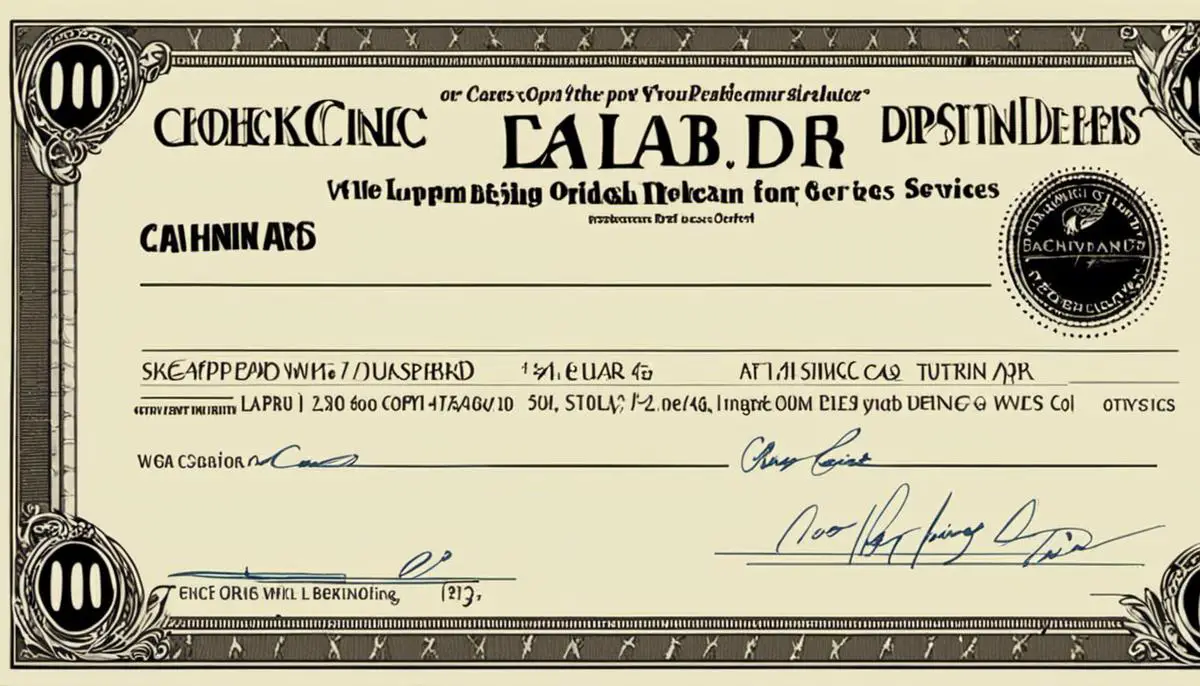
Ultimately, cashing a big check is not something that happens frequently, but when it does, being prepared can save you from unnecessary hassles or pitfalls. By understanding the process, the potential fees, and the alternative options, you put yourself in a position to make the best decision for your financial situation.
This discussion has also equipped you with the knowledge to stay safe from fraud, an unfortunate reality in this day and age. Remember, the takeaway here is simple – be informed, stay cautious, and always consider your options when it comes to handling your hard-earned money.
